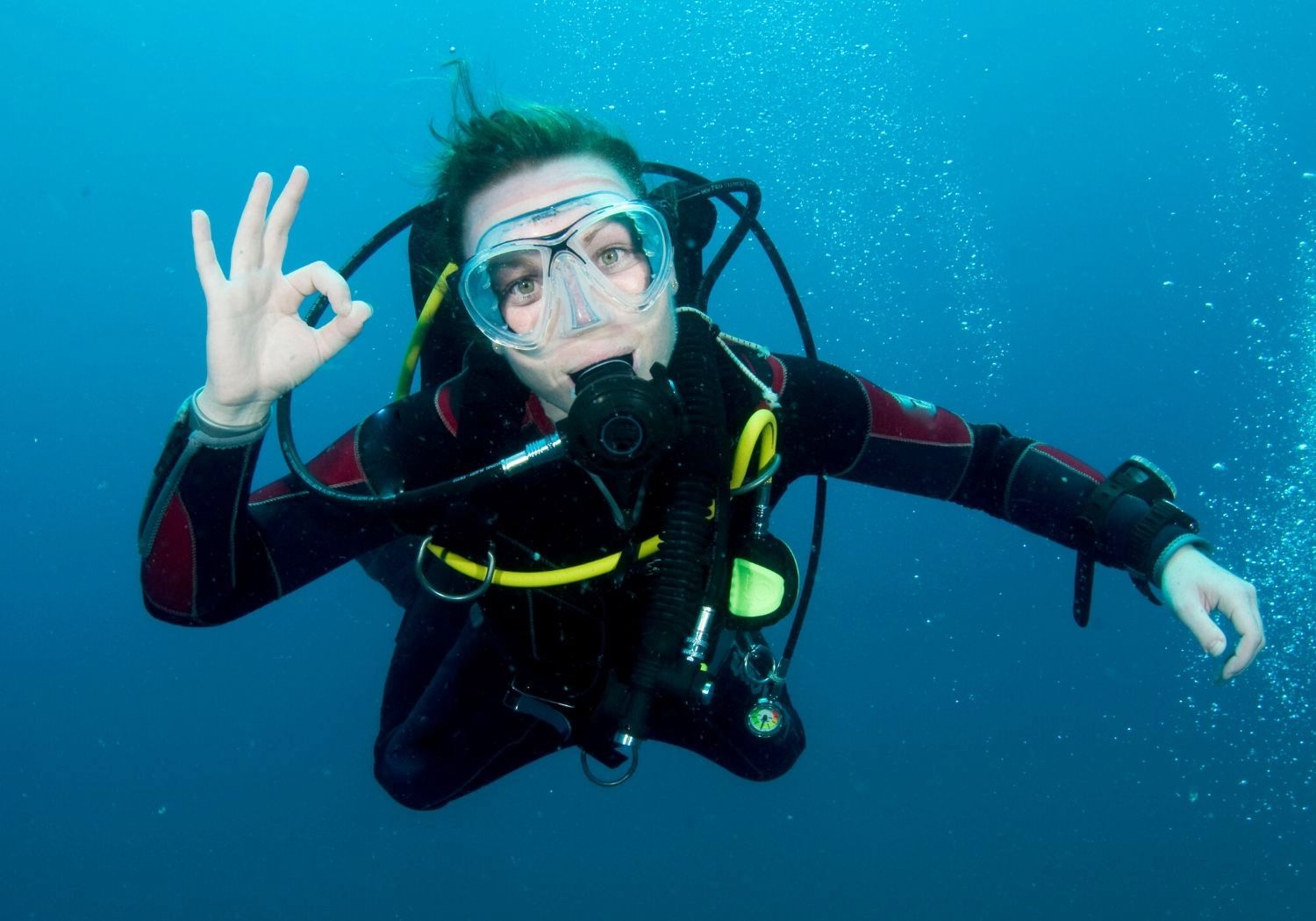
One of the most obvious ways to work and travel the world is by picking a job within the travel industry.
Some of the most obvious ones, such as cabin crew, are directly related to travel whereas others, like a travel agent, provide employees with lots of benefits that make it easier and more affordable to travel more often.
While we’ve already published a comprehensive post on the best remote and online jobs you can do while traveling, in this article we want to look at traveling jobs for females, aka jobs that are in the travel industry. Some of these require degrees and specialist education, whereas others have minimum skill requirements or can be learned through online courses.
Read along to find the best travel jobs!
Contents
Work as Cabin Crew

One of the oldest travel jobs is that of a cabin crew. After-all, working on a plane is the easiest way to get to travel the world for work!
About 10 years ago, most of the Middle Eastern airlines were in full growth and were hiring hundreds of crew members. This is still a trend with ICAO (International Civil Aviation Organization) predicting that the number of aviation jobs will continue to grow, particularly in the ground staff, cabin crew and customer care departments.
Job opportunities in Europe and Oceania are fewer with the majority of the passenger growth expected to come from Africa, Asia and Latin America. For many cabin crew members, this means that the job will not only allow them to travel but also to live abroad.
- What to expect: Crew members don’t work many hours a week, and in most European countries and the US, unions run tight rules on wellbeing and safety designed to limit the hours worked to ensure cabin crew members are in their fullest ability. However, airlines who fly long haul will have staff away from home for several days at a time because of the rest time between flights. For example, if you work for an airline like Emirates, you might be staffed on just three long-haul flights a month and be away from home for 5 days at a time. Smaller airlines who focus on shorter flights might have you sleeping home most nights.
- Salaries: Medium. Great perks mean you and your family can fly at heavily discounted prices, albeit on standby.
- Requirements: Usually basic education levels are required to be admitted for training at an airline. Speaking more than one language is a plus and having excellent interpersonal and customer service skills a must. Most airlines will have height restrictions (minimum and maximum) and require their crew to be able to swim.
- How to get a job as a cabin crew: Cabin crew members typically have to go through a training program designed by each airline which includes several aspects of flying as well as safety protocols and customer service. These programs last between 12 and 24 months. You should apply directly with the airline you wish to work for.
Other resources
- National Career Website from the UK Government has additional information.
- Manual to becoming a Flight Attendant for a Middle Eastern airline.
- Airline crew interview questions.
- A fun novel about being a Virgin Flight Attendant to see if the job is for you.
Work on a Cruise
Working on a cruise is one of the most popular travel jobs for women within the industry, primarily because they attract a wide range of skillsets and professional backgrounds.
Thousands of staff members work for some of the largest cruise lines, and the jobs vary from spa therapist to dancer/entertainer, casino crew, cook, cleaner, housekeeper, lifeguard, etc. So there’s something for almost everyone and every skill set.
- What to expect: Some cruise lines/trips will not allow staff to go onshore during stops, which does limit your time spent on the ground in the start and end destinations. While on a cruise, days are long and mostly spent working, but they are followed by long holiday breaks in the low season. Jobs tend to be on a contract basis for the season. This is not a job for everyone but it certainly has its perks.
- Salaries: Low to Medium depending on the job. Discounts available for the cruises provided by the company.
- Requirements: Depending on the job you are applying for you will need different skills.
- How to get a job on a cruise: Most cruise lines will have their own application processes.
Other resources:
- The book by Derek from Wandering Early about working on a cruise ship is a great tool.
- Cruise Job finder job portal and All Cruise Jobs portal.
- Carnival job portal, Princess career portal and Disney Cruise Line career portal.
Work on a Private Yacht
Instead of working on a large cruise ship you could also work on a private yacht.
When I was in Vavau Archipelago, in Tonga, I met the young crew of the private yacht of a wealthy Australian. The crew was small, only around 10 people, and they were anchored in Vavau’s quiet harbour for the summer months waiting for the owner. During the day they largely spent the time taking care of the boat, cleaning the decks and doing maintenance, but there was little for them to do.
They were not allowed to travel out of the island except for when they had holidays but were able to move around when the yacht changed position. Most of them had spent some time at other locations with different boats and knew that this was a temporary option until they got bored of Tonga and the Pacific.
- What to expect: Long hours when the owner is around or when the yacht is chartered out. Private boats tend to move much less and might spend long periods at the port. Usually, they anchor at different locations throughout the year and sail when the owner wishes to. Charter boats will be booked out and sailing during the season but quieter otherwise. Because the crew is small, it is important to have great co-workers not to get bored. The lifestyle is very different from that of a cruise ship and can make for great anecdotes and learning experiences.
- Salaries: Depending on role and experience, higher than that of a cruise ship but without the tips if on a private yacht. Charter luxury yachts can make up with higher tips.
- Requirements: Qualification and experience depending on the role. Some staff members can be in charge of diving, others can be deckhands, stewardesses, chefs or kitchen staff. There are specific short courses you can take to learn the basics and STCW safety courses are commonly requested. Yacht Captains require specific longer courses.
- How to get a job as a yacht crew: You can get trained first with some of the online courses. One of the most convenient ways to get a job on a yacht is by going to the main sailing hubs and asking around. Marinas that are famous for luxury yachts will all have hangout places to network, this is the best place to find a job especially in the hiring season. Some of these are Palma de Mallorca for the Mediterranean Sea or Fort Lauderdale for the Caribbean. There are also yachting events such as the Monaco Yacht Show, the Fort Lauderdale Boat Show or the Singapore Yacht Show which make for good opportunities to network and give our CVs.
Other resources:
- Bluewater for training courses and materials to work on a luxury yacht
- Yacrew for job postings and courses
- The Crew Network for maritime job postings
Become a Travel Agent

Being an independent travel agent is one of the best travel jobs. It means that you can both travel for work (usually on familiarization trips to experience some of the hotels or trips you offer), enjoy discounts and preferential rates for your own travels, and work from anywhere since your job is essentially online.
There are several types of travel agents. Some put together itineraries from scratch for their guests while others work for specific travel companies and some are mere resellers of pre-packaged tours on behalf of Host Agencies. Deciding which type of agent you want to be will determine the qualification and the upfront investment.
In many countries, becoming an independent travel agent will require you to set up a business and acquire a travel agency license which often comes with a high start-up capital. However, if you work as an agent for a well-established host agency or travel company you will instead get a monthly salary and usually a variable commission based on sales.
A friend of mine is a travel blogger and also works for a safari travel company called Shadows of Africa handling their Australian clientele. He does this job entirely online and remotely and has been living in China where his wife works. He gets paid a salary and commission based on sales.
Pro tip: It is important to differentiate between real travel agents and Multi-level marketing schemes (MLMs) which are pyramid schemes where each agent receives a commission from each new recruit. Some of these are genuine whereas others can be scams.
An MLM scheme can usually be identified when there is a set-up cost involved in working for the company as an agent. You shouldn’t have to pay to work for someone.
What to expect as a travel agent:
- What to expect: Travel agent jobs vary significantly from regular 9 to 5 jobs at a travel agency office (eg. Flight Center in Australia) to remote jobs done entirely online. If you can work remotely, all you need is access to the systems used by the agency you work for or to the systems used for bookings and good internet. Working for a reputable company gives you all the back-office support you need to do your job and is an easier-to-learn job. If you had to start from scratch, it would be difficult to build the business connections required to create your own trips. Bear in mind that with clients and destinations being spread out, you may have to work outside of regular business hours to tend to emails or calls. If you are an independent travel agent, you might have to be always reachable in case of emergencies.
- Salaries: Salaries vary significantly depending on your set up. However, the most lucrative positions for well-established agencies can pay really well with generous commissions added on top. If you start your own business, the sky is the limit.
- Requirements: While there are university degrees on the topic, most people will take a course from a reputable institution like the American Society of Travel Advisors. Alternatively, some host agencies provide training programs for you to learn. Besides learning the specifics of the job, to be an independent travel agent requires business skills, communication skill and computer literacy.
- How to get a job as a travel agent: Firstly, decide which type of agent you want to become. If you don’t have any experience, working for a Host agency might be the best place to start. Most independent travel agents I know started this way and then set up on their own with what they learned. Look for career opportunities on the websites of main travel agents in your country or check the websites below. If you are good at networking, you can also attend some of the largest travel conferences such as ITB Berlin or World Travel Market in London to make contacts and drop your CV with potential employers.
Other resources:
- Host Agency reviews
- American Society of Travel Advisors: How to become a travel agent
- How to become a travel agent article with tips
Become a Travel Blogger

Blogging is one of the most popular traveling jobs for females. The barriers to entry are very low, the investment is minimal and the skills required are usually areas we all have a degree of experience with.
You can simply start a blog in one afternoon without much money or experience. This is why there are millions of blogs out there, and why, to be successful, you need to pick the right niche.
You can blog about anything that you are passionate about. The most popular blogging niches are travel, lifestyle and food, simply because these are areas that people are passionate about and we can all relate to.
Bloggers make money through various channels but the most common ones are advertising, affiliate commissions from recommending products or services and sponsored posts written to promote a brand.
What to expect from blogging:
- What to expect: Blogging is a demanding career that requires long hours and months of work before you can start to generate a relevant income. It is a long term investment and not a get-rich-quick scheme. It is possible to make five figures a month from it (and both Megan and I do) but after years of hard work. Contrary to what the media tries to sell you, successful blogging is not achieved overnight but after months of hard work. Read all about what it’s like to be a Content creator and blogger in this survey.
- Salaries: Anything from $500 a month for those with young blogs to over $10,000 from well-established and diversified blogs.
- Requirements: Starting a blog is easy, but to be good at it you will need to learn the technical basis of running a WordPress blog, photography skills if your blog is in a visually-heavy industry (travel, food), social media management experience, business management skills and good SEO writing.
- How to start a blog: If there is one piece of advice Meg and I can give for starting a blog, it’s to start out right. Undoing the “mistakes” later on may be impossible or really costly, so it pays to take a course at the beginning to be set from the get go. We recommend the resources below from people we personally know and courses we have personally tested and recommend.
- Where to find blogging opportunities: There are several platforms you can sign-up for and which help bloggers find campaigns. Linqia and Cooperatize offer performance-based payments (based on readers of an article). Commission Junction is one of the largest affiliate network companies and also offers campaigns to its affiliates. Clever is a female and US-focused online platform that offers a range of lifestyle collaborations oftentimes with payment.
Other resources:
- The ultimate best blogging course is by Sharon Gourlay. She is the Queen of SEO and affiliate marketing and has set up and sold several blogs. She is really a blogging machine, and even though we each run successful blogs ourselves, we have been in her group for years and have taken her course. If you want to fast track your success and make money within the year, take her Build Blog Freedom Fast Track course.
- Tom and Anna from Adventure in You grew a business from nothing and now teach others how. They have 70,000 members in their newsletter and are very good at monetising their blog. Their course is another great one we highly recommend. You can start with a free blogging course and see if this is for you first before you pay any money, maybe you’ll discover blogging is not really what you want. Join their FREE Blogging fast lane course.
- Jessie Festa’s Travel Blog Prosperity courses are structured as a monthly membership instead of an upfront cost which means that you also get monthly encouragement and support much like you would in a mastermind group. This hand-holding is what makes this a favorite for many bloggers who find working online alone quite daunting. We reached out to her and asked for an offer for the community so you will get the first month at only $9 if you use code SFT and this link to sign-up.
Influencer

Being an influencer and being a blogger are two different things. A blogger, by definition, has a blog, whereas an influencer may just have social media profiles. Both are legitimate traveling jobs for females, just different in the skillsets, the type of work and the way income is generated.
Influencers usually make money by creating engaging and high-quality content to promote brands to their audiences. Usually, when we think of an Influencer we will associate this with Instagram. The platform has certainly made monetization of a social media account easier and created an entirely new industry.
In order to make relevant money as an Influencer, you need to have a small but very engaged audience in a lucrative niche (eg. teaching yoga) or a very large audience. In today’s competitive environment, you also need to have strong creativity skills and content that is consistently unique.
In the travel niche, many Instagrammers work in exchange for complimentary stays and the payment in kind is more commonly accepted. The same happens in the fashion niche. Other industries such as lifestyle or consumer goods have higher pay potential. Niches related to kids/family, home decor among others, can generate higher rates.
What to expect as an influencer:
- What to expect: Starting out and growing a following can take time and usually, a minimum of 10,000 followers are required to be able to monetize, with much larger audiences depending on the niche.
- Salaries: Salaries depend on the following and skillset. As a rule of thumb, an Instagram post can attract fees of roughly $100 for every 10,000 followers, but this is largely dependent on the niche, country, type of content, etc.
- Requirements: Talent, creativity and photography/videography skills are a must since the job entails creating content. Social media experience is essential too. Upfront investment depends on the niche chosen and the time/effort needed to create content (eg. a fashion blogger might have to regularly invest in clothes to create new content)
- How to get a job as an Influencer: This is one of the easiest jobs to start out in which is why it has become so popular. Just a mobile phone is required to open an account.
Other resources:
- There are several platforms to find brand collaboration opportunities on Instagram and other social media networks. Tribe and Vamp are very Instagram focused and pay in cash. Activate and Obvious.ly tend to focus on barter campaigns which are good when starting out to get free products to build your portfolio.
- Socialpubli is strong in Spanish-speaking countries.
- Considerable Influence is best suited for those in the UK as a lot of their campaigns are localized. There is a range of offers available, from appearances and events to video creation.
YouTuber
As opposed to Influencers and Bloggers, YouTubers create video content shared on YouTube. Usually, the easiest and quickest way to make money off YouTube is from ads. As soon as your channel reaches 1,000 subscribers you will be able to turn on monetization and ads will start to appear on your videos.
Once you reach a certain size, brand collaborations become an additional opportunity. A brand may hire you to create content for them, to review a product, to include them in a video, etc. and payment is usually dependent on followers and the average number of views per video.
- What to expect: It can take a long time to reach the minimum number of followers/views to make significant income from YouTube ads. Niches like travel, makeup or fashion are saturated, so to succeed you need to offer something very unique or pick a niche where competition is low, for example, Learn German with Anja.
- Salaries: As a rule of thumb, you should expect to make between $1 and $2 per 1,000 YouTube video views which means that a video with 100k views will generate $100-$200 in ad income. You need a relatively large channel to make a full-time income from YouTube ads. Generating an income from brand collaborations is usually a much more lucrative opportunity once your number of followers reaches a minimum of 10,000.
- Requirements: You can start off making videos with just your phone, however, a good microphone, light and camera are prerequisites to creating quality content. Depending on the niche, you might also need additional tools such as camera gimbals or tripods, as well as good editing or animation software.
- How to start off as a YouTuber: One of the best ways to get started is by spending time looking at what successful YouTubers are doing. There are two particularly successful female YouTubers that not only do videos but also have a strong entrepreneurship and online business mindset. Vanessa Lau is great for YouTube and also for Instagram and Sunny Lenarduzzi has an entire video series on the business of YouTube. After you have done your research and know what your channel will be about, you can create your channel. YouTube is not a get-rich quick channel and to succeed you will have to do something different and consistently before you start seeing the results. This is why a lot of YouTubers start it as a side gig while still working full time.
Other resources:
- BrandConnect, owned by YouTube, focuses mostly on YouTube campaigns and is a good place to find brand collaborations. However, payment is often in kind rather than in cash.
- YouTube has a lot of resources in their YouTube Creators which you can check out.
Content Creator, Videographer or Photographer
The difference between a Content Creator and a Blogger, YouTuber or Instagrammer is the distribution aspect of the content creator. A Content Creator is a good photographer or videographer but may not necessarily have a huge following or audience, they generate an income from creating content for brands to use in their channels.
You can look at a Content Creator as the democratization of the videographer or photographer profession in the era of social media. Some Content Creators can evolve into full-blown Instagrammers or YouTubers when their following grows or may partner with one for campaigns.
- What to expect: As this is a job that you entirely define yourself, your days can look like anything. You could have your own studio at home with green screens and all the equipment or work on the road, being a digital nomad and carrying your equipment with you. For a lot of people, this variability is a pro whereas for others the uncertainty and inherent loneliness can wear them out.
- Salaries: A Content Creator’s income can come from campaigns where content is created for a brand or from selling videos/photos on a stock site. Your ability to find campaigns will be largely dependent on where you are and how you present/approach brands, there are also some platforms for these kinds of opportunities mentioned below. You can also sell stock photography or videography via stock sites such as Shutterstock though the rates per image are small (as little as $0.25 per photo) and it is more of a volume business where you need to build a large stock portfolio to make significant money.
- Requirements: You will need to have strong videography or photography skills to work with brands and build a solid portfolio. The images and video footage that do best on stock sites tend to be quite different from the images that do well on social so it pays to see what sells well. Shutterstock provides such information on their site.
- How to get a job as a Content Creator: Anyone with good photography or videography skills can start a portfolio in one of the popular services such as 500px or Flickr, or even on Instagram and YouTube. Having a range of content helps, but focusing on a specific niche is more lucrative and makes it easier to have a client list to pitch to. Some niches like travel are saturated with Content Creators, Bloggers, Instagrammers and YouTubers and it is harder to get paid for the work because the barter system is engrained. Start selling your images or videos on Shutterstock by simply creating a profile and uploading your content.
Other resources:
- Takumi and Cohley are two platforms for Content Creators, professional photographers and videographers to find opportunities.
- Here is the site to become a Shutterstock contributor.
Scuba Diving Instructor

One of the best travel jobs in the world is becoming a scuba diving instructor. You can move from destination to destination depending on the season and be employed all year round, or choose to base yourself in a location and take time off during the off-season.
Take this to the next level by combining summer and winter sports and becoming a scuba diving instructor during the summer and a ski instructor during the winter.
- What to expect: During the season, working hours can be long and involve working 7 days a week. However, diving seasons in some destinations can be short.
- Salaries: The salaries paid to scuba diving instructors vary significantly depending on the location. Salaries often come with basic boarding (sometimes shared) and some meals but can be low in some countries like those in Southeast Asia.
- Requirements: A Dive Master certification is an internationally-recognized training to work as a scuba diving instructor and you will be required to show that along with a certain degree of experience to work at a dive center.
- How to get a job as a dive instructor: There are several websites where you can find PADI jobs but one of the easiest and possibly cheapest ways to get started is by simply choosing a diving hub you want to base yourself in and dropping your CV. Thankfully, the world of scuba diving is quite homogeneous in its qualifications and you can use PADI certifications for Dive Master and your number of dives as the way to show experience. It helps if you have a similar experience to the type of job you are applying for (eg. winter vs. summer diving).
Other resources:
Ski Instructor
Much like being a scuba diving instructor, ski instructors usually work the winter season. Some can travel between the northern and southern hemisphere in search of the snow whereas others work only half a year and travel the rest.
- Requirements: You will first need to get a ski instructor training course that is recognized by the International Skiing Association. You can obtain this in many countries and usually, the certifications you get are internationally recognized and valid everywhere. Obviously, you need to be a good skier to start with. These courses last between 3 and 4 months.
- How to get a job as a ski instructor: Once you have completed the training, there are lots of job portals for seasonal skiing jobs. Most of the training schools and companies have their own portals so you could choose the school based on where you prefer to work (New Zealand, Switzerland, US, etc.).
Other resources:
- Guide to finding a ski instructor job
- Ski and snowboarding school
- Winter sports company job portal
- Basecamp Jobs Board
Surf Instructor
Becoming a surf instructor is like becoming a scuba diving instructor or a ski instructor, it is another seasonal job that will allow you to travel the world to a destination where surfing is big, for example, Australia, Hawaii or Bali.
While salaries may not necessarily be very high in some locations, being a surf instructor means you can work in various locations and travel the world.
- What to expect: Surfing is also a seasonal job but can be a year-round job in some places where the waves are more or less constant year-round. This means that you could simply change location if you wanted, whenever you wanted. As a job that is done outdoors, you will have to spend a lot of time in the water and sun, and on the sand teaching people. This means you need good wet suits and physical stamina to battle the elements.
- Salaries: Salaries largely depend on where your job is. While they can be quite good in places like Australia or the US, they can also be quite low in destinations in Asia or Latin America.
- Requirements: You will need to be a good surfer to start with and then you need to complete a Surf Coaching training and a Lifeguard course. After the course is complete, you will need to do practical training at a school, after which you are qualified. There are lots of course certifications you can get but the International Surfing Association ones are the most popular. Some countries may require additional certifications and if you want to teach in places with rough oceans or high waves you will need advance Surf Coaching courses.
- How to get a job as a surf instructor: Besides the obvious job boards, like with other seasonal jobs which are location-based, the best way to find a job is to head to your chosen location at the start of the season with a good CV and network with those in surf schools to see if they have any vacancies.
Other resources:
- Surf Girl Mag How to become a surf instructor
- Surf Education Academy to find surf camps to get your coaching training
- 50 places to surf before you die
- The inspiring story of Bethany Hamilton who lost an arm to a shark attack and still got back on the surfboard
- Surf instructor jobs
Work in Hospitality

Like with airline jobs, working in hospitality affords generous perks and benefits and some travel depending on the role. If you work for one of the larger hotel chains, you usually get an amount of discounted or free nights a year to be booked at sister properties which you can use for personal travel.
Some roles, for hotel groups or in sales, tend to require business travel which you can then usually combine with leisure extensions.
Many have chosen a role in hospitality because of how geographically transferable it is. For example, you can be an itinerant chef and work in hotels around the world, or take jobs as a porter or in housekeeper in various locations. Waitressing is also a skill that is useful in finding jobs around the world.
Another common option for those interested in short-term hospitality jobs is offering to work at a hostel in exchange for room and boarding. You can simply leave your CV at the few hostels in the location you are in.
- What to expect: Your day to day can vary significantly depending on the type of job that you are looking for. Hospitality is notorious for keeping irregular and unusual hours but that is not the same for all roles. Back office jobs tend to be more predictable and even keep from Monday to Friday. If you are offering to work at a hostel for free room and boarding you are most likely going to work at the reception, cleaning or in housekeeping unless you have experience.
- Salaries: Salaries vary significantly depending on the role and location. Many roles rely heavily on tips which can add up to a substantial amount.
- Requirements: The role you are going for will determine the skills required. Some roles require formal education while others, especially entry-level roles, can be done with on-the-job training. Generally speaking, the hospitality industry requires good interpersonal and communication skills, especially in client-facing roles.
- How to get a job in hospitality: There are many job portals for the industry but if you are looking for an entry-level position the best way is to drop your CV with the establishments in the location you want to live in. Having experience usually helps.
Other resources:
Tour Leader
For those who love certain destinations, becoming a Tour Leader can be one of the best traveling jobs for females out there.
The job usually consists of leading a group tour around a destination, either independently if you own the tour company yourself, or for another company that takes care of the sales, marketing and logistic arrangements so you just escort the group and provide on the ground support.
If you are the tour leader, you escort the group and will have the support of local guides at each destination. On the other hand, a tour guide is the one who has the knowledge of a site or destination and will provide commentary for the group.
In the age of the sharing economy, one of the quickest and easiest ways to start practicing is by starting to host experiences in your home town. Airbnb makes this quite easy.
- What to expect: Being a tour leader or guide is tough. You might have to deal with new issues on every trip, have to be available 24/7 for any emergencies and have to be resourceful to resolve any situation. If you are working on a seasonal destination you might have to work 7 days a week during the peak season, without any days of rest. The type of tour you lead or guide will determine the type of job involved. It is not the same to lead an expedition in Africa than to do a tour around a European city. Also, repeating the same itinerary over and over again can become quite unappealing after a while, though different clients often mean different challenges.
- Salaries: Salaries will depend on the company and location but many tour guides and leaders make a significant part of their income from tips.
- Requirements: Having in-depth knowledge of a location and the local language will put you at an advantage, as will being an experienced traveler. There are specific degrees and training courses that are particularly designed to provide you with the skills and experience required to lead a tour.
- How to get a job as a Tour Leader/Guide: Usually, the training schools have useful job boards and will help with placements. Besides directly applying with the companies you love and want to work for, conferences are a good way to network and meet potential tour companies.
Other resources:
- ITMI Tour Director training courses
- How to start a tour company course by Jessie Festa – this is much more affordable than other courses out there, and is a course to launch your own tours instead of learning to lead tours for others. Jessie runs successful tours in NYC and has been doing so for years now.
Do you know of other industry based travel jobs for women? We have aimed to create the most comprehensive and well rounded resource online, so please do tell us in the comments. We’d love to hear how you make money within the travel industry!
